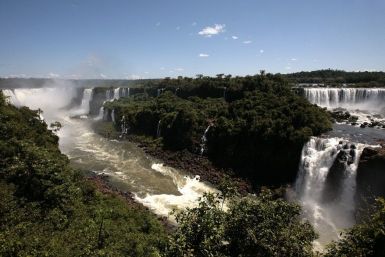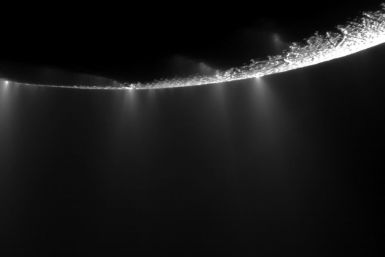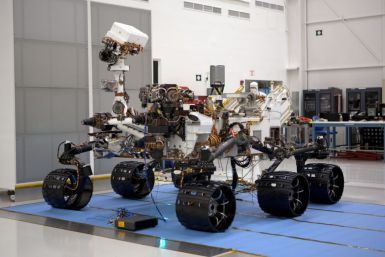One of the great natural wonders of the world, the Iguazu Falls.
With rising and scorching heat and dry weather conditions likely to persist across the U.S., TripAdvisor suggests the top ten water parks in the country, worth visiting to beat the summer heat.
The Herschel Space Observatory has detected the first ever oxygen molecules in space, located in the Orion nebula, which ended a mystery lasting 230 years regarding oxygen in space.
Hong Kong tycoon Li Ka-shing has agreed to buy British utility Northumbrian Water Group for 2.4 billion pounds ($3.9 billion) in the biggest takeover this year of a British-listed company.
Hong Kong tycoon Li Ka-shing agreed to buy British utility Northumbrian Water Group for 2.41 billion pounds ($3.92 billion) in the biggest takeover this year of a British-listed company.
A consortium led by Hong Kong tycoon Li Ka-shing's Cheung Kong Infrastructure Holdings <1038.HK> has agreed to take over Northumbrian Water Group Plc in an all-cash deal which values the British utility at about 2.41 billion pounds ($3.92 billion).
A joy ride turned deadly in the Russian capital late on Saturday night
Planetary scientists examined information from European Space Agency's (ESA) Herschel space observatory and determined that Enceladus, the sixth largest moon of Saturn, is raining water vapors that form a huge donut-shaped ring around Saturn.
"There is no analogy to this behavior on Earth," said Paul Hartogh of Max-Planck-Institut für Sonnensystemforschung, the scientist who led the analysis that yielded the odd results.
For more than a decade scientists have pondered about Saturn's water source in the upper atmosphere, which they have found comes from the icy moon Enceladus.
ESA's Herschel space observatory has found that that the water given off from the moon Enceladus created a giant torus of water vapor around the planet. This latest discovery means that Enceladus is the only moon in the Solar System that is known to effect the chemical composition of Saturn, its parent planet.
The 14-year mystery behind the water on the planet Saturn is now solved. Researchers have found that the planet's sixth largest moon named Enceladus is the source of a huge halo of water steam around Saturn.
The latest discovery around Saturn reveals that a moon covered with ice is providing water to the planet, creating a rain-showering halo. The water vapors are visible as tiger-like stripes of gas and ice that escape at the southern pole of the moon and become a main water-source vapor for Saturn's upper atmosphere.
Rain from Saturn?s moon has encapsulated the entire planet of Saturn in water vapor, according to observations released by the European Space Agency (ESA) on Tuesday, which finally pinpoints the water source in Saturn?s upper atmosphere.
Enceladus, Saturn's six-largest moon, was discovered to be raining over 550 pounds of water vapor every second toward Saturn.
Astronomers found a reservoir of water measuring 140 trillion times the earth's ocean water in space. The reservoir of water is the most distant ever discovered in the universe, said two teams of researchers.
Nicknamed 'Curiosity,' NASA's new Mars rover is being prepared to explore Gale Crater on Mars, with a mission to find answers to whether the environment could support and preserve life on Mars.
A massive bloom of algae has spread to a size of almost 20,000 square kilometers in the waters off of China?s eastern coast, according to a report by the country?s state-controlled Xinhua news agency.
Almost 200 sq miles of the Yellow Sea in China have been clogged by a massive invasion of a species of green algae called Enteromopha prolifera.
The largest body of water to date -- anywhere in the universe -- has been discovered in space, with mass measuring several trillion times the water on the whole of planet Earth.
Researchers have found the largest body of water anywhere in the universe, to date, with mass that measures several trillion times the mass of water on the entire planet Earth.
The celebrated vastness of Earth's oceans looks more like a droplet compared to a remote supermassive blackhole that contains 140 trillion times as much water.



































